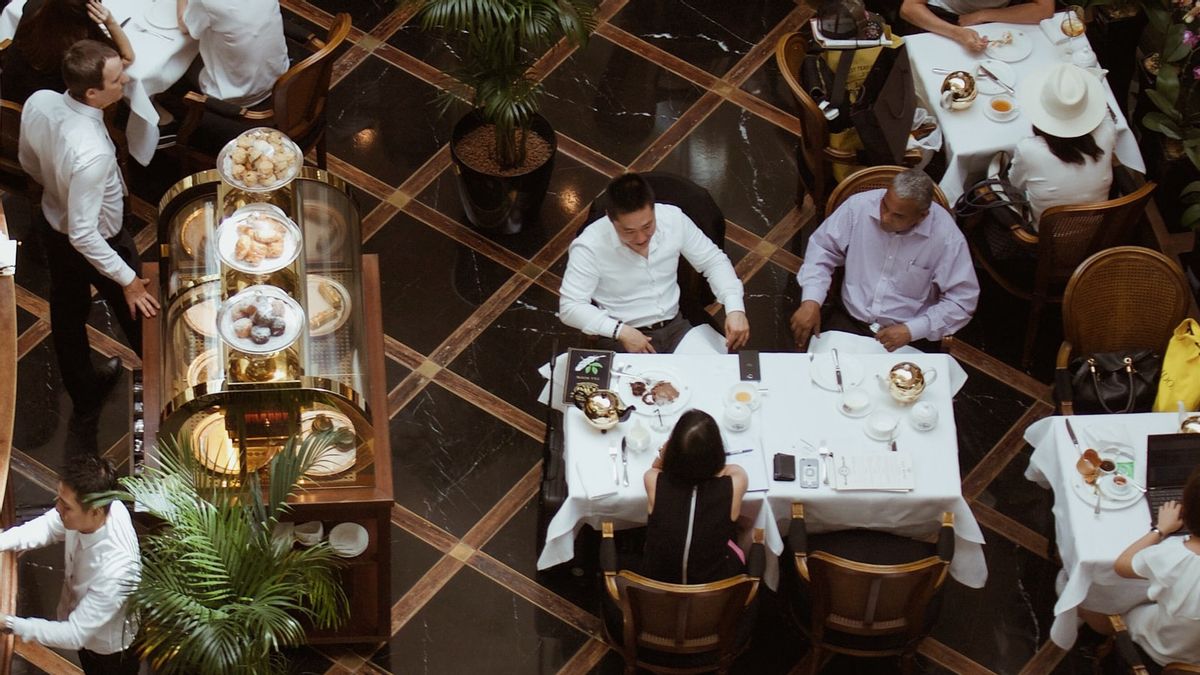JAKARTA - There has been a rumor of spreading the COVID-19 through the dining table lately. Transmission occurs when one person eats together even though he or she has previously followed health protocols. Along with this, a suggestion emerged that the COVID-19 Task Force began to consider banning on-site dining for restaurants.
Indonesian Hotel and Restaurant Association (PHRI) Deputy Chairman for Restaurant Emil Arifin said restaurant entrepreneurs are willing to close shops to avoid spreading COVID-19. However, there are conditions. He said the government must be willing to compensate employees.
"If you want to close it, you can, no problem. But give compensation to employees who work, given a salary subsidy while the restaurant is closed", he said, when contacted by VOI, in Jakarta, Thursday, January 28.
Not only employee salaries, Emil said, the government must also provide compensation to restaurant entrepreneurs in the form of fresh funds to pay rent to electricity bills.
"Likewise, for the restaurant company, the rent is reimbursed, the service charge is changed. That's the minimum compensation can be given to restaurant entrepreneurs", he said.
In the midst of the crisis due to the COVID-19 pandemic, Emil explained, businessmen prefer to close their shops rather than stay open but with regulations only serving take away. Because, he said, 80 percent of a restaurant's income comes from dine-in or eating on the spot.
Therefore, said Emil, the restaurant is designed for people to sit down to eat in the restaurant. Hence chairs, tables, and others are provided. Meanwhile, the income from take away is only 15 percent. In fact, in a situation of limiting community activities such as the current take away system sales have not increased.
"Earning from take away, from the past it has never increased from 15 percent. At most 10 to 15 percent from the past. Until now it has also not increased. Where does income come from? Not only from take away? Yes, it's better to close. cover costs. How much is the rental fee, how much electricity costs, it's impossible", he said.
Earlier, the epidemiologist from Australia's Griffith University, Dicky Budiman asked the COVID-19 Task Force to start considering banning on-site dining for restaurants and food courts. This policy is the same as that of the Australian government.
This was conveyed following the rumor of spreading COVID-19 through the dining table. Later, many infections occur when one person eats together even though he/she has previously followed health protocols.
It was the same as experienced by Doni Monardo, Head of the Task Force for Handling COVID-19. Some time ago Doni stated that he had contracted the virus after eating together during a visit to the location of a natural disaster.
"In addition to socialization and education, regulations need to be strengthened. For example, you are not allowed to eat together or the setting is regulated. In Australia, for example, when the situation is still serious, there is no such thing as a food court to be opened or a restaurant to sit there", said Dicky when contacted by VOI, Wednesday, January 27.
"So there is no public place where the seats can gather are opened and when it is violated, there will be sanctions", he added.
The English, Chinese, Japanese, Arabic, and French versions are automatically generated by the AI. So there may still be inaccuracies in translating, please always see Indonesian as our main language. (system supported by DigitalSiber.id)









